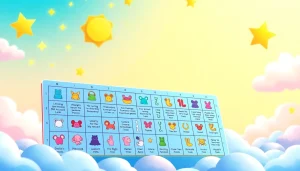Navigating the Challenges of a Relationship Breakup: Insights and Strategies

Understanding the Emotional Impact of Relationship Breakup
Experiencing a relationship breakup can evoke a complex mix of emotions, making it one of the most challenging life events to navigate. Understanding the emotional impact of a breakup is essential for effective healing and moving forward. This section dives deep into the grieving process, common emotional reactions, and how breakups affect overall mental health.
The Grieving Process After a Breakup
Just like any form of loss, a breakup initiates a mourning period. The grieving process can vary significantly from person to person, reflecting individual emotional capacities and experiences. According to Elizabeth Kübler-Ross, who famously identified the stages of grief, individuals commonly experience denial, anger, bargaining, depression, and acceptance after significant losses, including the end of a relationship.
In the case of romantic relationships, the stages may present as follows:
- Denial: This is a defense mechanism that helps buffer the initial shock of the breakup. Individuals may rationalize the end and refuse to accept that their relationship is over.
- Anger: Once the reality sets in, feelings of anger often surface – whether directed at the ex-partner, oneself, or the situation as a whole.
- Bargaining: Many individuals go through a phase where they reconsider what actions could have changed the outcome. This might involve longing for past conversations or reaching out with hopes of rekindling the relationship.
- Depression: Feelings of sadness and despair can become overwhelming. This is when individuals start to realize the weight of the loss, leading to withdrawal from social interactions and daily activities.
- Acceptance: In due course, the individual begins to find peace with the breakup, acknowledging the finality of it and starting the journey toward healing.
Each of these stages can take varying amounts of time, and many people experience these stages in non-linear ways, sometimes reverting to earlier stages amid overwhelming emotions.
Common Emotional Reactions
Aside from the stages of grief, a myriad of emotional reactions can arise after a breakup. Understanding these reactions can help individuals validate their feelings and foster self-compassion during the healing process. Common emotional responses include:
- Sadness: A pervasive sense of loss often accompanies a breakup. This sadness can feel all-consuming, fluctuating between waves of grief for the relationship that once was, and the dreams and plans associated with it.
- Relief: Though not commonly talked about, many individuals may feel relief following a breakup, especially if the relationship had been strained, toxic, or unfulfilling.
- Anxiety: Breakups can stir feelings of anxiety, especially regarding future relationships or facing life alone. Uncertainty about what comes next can cause significant mental upheaval.
- Angst and Restlessness: It’s common to feel restless post-breakup, leading individuals to engage in erratic behavior, whether it’s going out more often or abruptly changing their routines.
Understanding that these emotional reactions are part of normal human experience allows individuals to navigate their reactions with greater understanding and acceptance.
How Breakups Affect Mental Health
The impact of breakups on mental health can be profound and long-lasting. Studies have shown that breakups can lead to increased likelihood of stress, anxiety, and depression. The emotional distress experienced could contribute to physiological symptoms as well. According to research, individuals may suffer from:
- Clinical Depression: Significant emotional distress following a breakup may escalate into clinical levels of depression for some individuals.
- Loneliness: The end of a partnership can provoke severe feelings of isolation, particularly for those who had relied financially or emotionally on their partner.
- Declining Physical Health: Chronic stress and emotional upheaval might lead to trouble sleeping, changes in appetite, or other health concerns that can adversely affect physical well-being.
Prolonged emotional distress could lead to negative outcomes that reach far beyond the personal realm, potentially affecting career performance, social life, and even future relationships. Thus, addressing mental health during and after a breakup must be prioritized.
Recognizing Signs It’s Time for a Breakup
Understanding when to end a relationship is not always straightforward. Many people wonder if they are experiencing a rough patch or if it’s time to go their separate ways. By recognizing specific signs and patterns, individuals can make informed decisions about their relationship status.
Identifying Relationship Patterns
Identifying detrimental patterns within the relationship is crucial for evaluating its health. Some common patterns that indicate a relationship may no longer be working include:
- Constant Conflict: Frequent arguments or unresolved issues can create an environment of toxicity. If the pattern of fighting outweighs moments of harmony, it may be indicative of a larger, irreparable problem.
- Emotional Withdrawal: If one partner emotionally withdraws or becomes distant, feeling less invested, it can erode the foundation of the relationship, suggesting disinterest or a longing for separation.
- Loss of Respect: Disrespectful behavior, including name-calling or belittling, reflects significant relationship issues that often point toward the potential need for a breakup.
- Loss of Trust: Trust lies at the core of any healthy relationship. Persistent issues, such as infidelity or dishonesty, showcase a deep-seated problem that can be challenging to overcome.
Reflecting on these patterns can serve as a strong indicator of whether maintaining the relationship is worth the effort or if stepping away might be healthier.
Understanding When to Let Go
Letting go of a relationship can be one of the most difficult choices to make. Sometimes, individuals might find themselves clinging to the past or hoping for changes that may never come. However, several scenarios indicate when it’s time to consider letting go:
- Feeling Unfulfilled: It’s essential to recognize when a relationship is no longer adding value. A long-standing feeling of dissatisfaction or emotional neglect can manifest as a reason to move on.
- Different Goals: As individuals grow, their aspirations and life goals may evolve as well. If partners no longer align regarding values or life paths, it may lead to an inevitable separation.
- Incompatibility: Recognizing fundamental incompatibilities—whether regarding lifestyle, emotional needs, or family aspirations—can be a strong indicator that the relationship might not work long term.
- Unresolved Past Traumas: If one partner is unwilling to address past traumas or continues to bring unresolved issues into the present, growth is hindered, indicating potential for dysfunction.
While letting go can be painful, it is sometimes necessary for personal growth and future happiness.
Communicating Your Feelings Effectively
When reaching the decision to break up, effective communication is paramount. Having an honest conversation can be daunting, yet it can considerably ease the emotional burden for both partners. Here are strategies for effective communication:
- Be Honest but Compassionate: Honesty is vital, but it’s important to consider the feelings of the other person. Express your feelings genuinely while being kind.
- Choose the Right Time and Place: Finding a neutral, private environment can lead to a more productive discussion. Timing is also critical; avoid high-stress moments.
- Be Prepared for Emotions: The person you’re breaking up with may react unpredictably. Be ready for emotional responses, and allow them the space to share their feelings.
- Stick to the Decision: During the conversation, be firm but respectful about your decision to break up. This ensures clarity and reduces ambivalence.
Supporting a compassionate and clear dialogue can significantly ease the transition for both parties.
Strategies for Coping with Relationship Breakup
Coping with a breakup requires resilience and self-care. Here, we explore several strategies that can help individuals process their emotions and navigate the aftermath of a breakup.
Healthy Ways to Process Emotions
Processing emotions is a vital part of healing. Effective strategies include:
- Journaling: Writing down your feelings can be tremendously therapeutic. It provides a safe outlet for emotions and can help clarify thoughts.
- Speaking with a Therapist: Therapy provides a safe space for individuals to work through their feelings. A professional can guide through coping strategies tailored specifically to the individual’s situation.
- Artistic Expression: Engaging in creative outlets, such as painting, music, or performance, can help channel emotions in a productive manner, facilitating an understanding of grief.
Utilizing these methods encourages emotional growth, paving the way for healing.
Building a Support System
A strong support system can play a crucial role in coping. This might consist of trusted friends, family members, or support groups. Engaging with a supportive community can provide the reassurance needed during this vulnerable time:
- Open Up to Friends/Family: Share your thoughts and feelings with people you trust. Doing so can promote feelings of closeness and understanding.
- Join Support Groups: Connecting with individuals who have experienced similar breakups can provide valuable perspectives and insights, fostering a sense of community.
- Limit Time Alone: Actively seek social engagements to avoid isolation, a common pitfall following a breakup.
Having a robust support system creates a buffer against loneliness and helps individuals feel heard and understood.
Self-Care and Self-Discovery
Prioritizing self-care is fundamental during the healing process. This is not just about engaging in comforting activities but also about investing in personal growth:
- Physical Well-being: Engage in regular exercise, eat balanced meals, and prioritize adequate sleep. These factors significantly affect mental clarity and emotional stability.
- Explore New Interests: Use this time to explore hobbies or activities you may have neglected. Seeking new interests can foster joy and feelings of accomplishment.
- Practice Mindfulness: Techniques such as meditation and yoga can profoundly affect emotional well-being, allowing individuals to stay present and grounded.
Self-care is not indulgent; it is a crucial aspect of coping. Through nurturing oneself, individuals strengthen resilience and expedite the healing journey.
Moving On: Life After a Relationship Breakup
Once the dust of the breakup has settled, moving on and feeling ready for the next chapter is essential. This transition includes finding closure, rebuilding confidence, and preparing for new relationships.
Finding Closure
Closure is a critical component of healing. It may not always come from the partner but often from within. Here are steps to help achieve closure:
- Reflect on the Relationship: Taking time to analyze the relationship can foster understanding and acceptance, which helps facilitate emotional closure.
- Write a Goodbye Letter: Write a letter to your ex, expressing any feelings that remain. Even if you don’t send it, this act can symbolize letting go.
- Establish No Contact: Creating space post-breakup can significantly help in moving forward and finding closure. Limit communication for a set period to focus on healing.
Finding closure is essential for breaking free from the past, allowing personal growth and readiness for what’s ahead.
Rebuilding Confidence and Self-Esteem
After a breakup, self-esteem can take a hit. Working to rebuild confidence is crucial for forging ahead. To do this:
- Set Achievable Goals: Focus on small, attainable goals that cultivate a sense of accomplishment. Whether related to fitness, work, or personal development, success in these areas can boost self-esteem.
- Affirmations and Positive Self-Talk: Practicing daily affirmations can counter negative thoughts and reinforce self-worth.
- Seek Feedback: Ask trusted friends or family for affirming feedback. Sometimes, others can see strengths in us that we may overlook.
Rebuilding confidence will create a stronger foundation for future relationships.
Entering New Relationships Wisely
When ready to venture into new romantic territory, it’s essential to approach it wisely:
- Take Time: Avoid jumping into a new relationship immediately post-breakup. Give yourself ample time to heal fully before pursuing new connections.
- Know Your Standards: Take stock of the lessons learned from past relationships and set clear boundaries and standards for future partners.
- Stay Open-Minded: While keeping standards is vital, be open to new experiences and understanding that every relationship is unique.
Following these principles will help to foster healthier, more fulfilling relationships in the future.
Preventing Relationship Breakup Regrets
As a relationship comes to a close, individuals often grapple with feelings of regret. Learning from past experiences and understanding personal growth can mitigate these feelings moving forward.
Reflecting on Personal Growth
Post-breakup reflection can lead to significant personal insights and growth. Consider these approaches:
- Journaling: Continued reflection through journaling can promote deeper insights into personal growth and the lessons learned.
- Therapy Reflection: Discussing feelings of regret with a therapist can shine light on paths toward self-acceptance and growth.
Personal reflection is a gift that can yield important lessons for future relationships.
Lessons Learned from the Relationship
Taking time to extract lessons from the relationship and understanding what worked and what didn’t can foster forward momentum. Engaging in self-assessment can help individuals recognize patterns in their choices and behaviors.
Practicing Forgiveness and Letting Go
Forgiving oneself and an ex-partner is pivotal in moving on. Consider these techniques:
- Understand that Mistakes are Human: Recognizing that everyone makes mistakes can assist in forgiving both oneself and a partner.
- Practice Mindfulness: Engaging in mindfulness practices can aid in processing emotions and fostering an environment conducive to forgiveness.
Practicing forgiveness is often one of the hardest yet most liberating steps toward moving on. This allows an individual to release the past and embrace new beginnings with an open heart.







